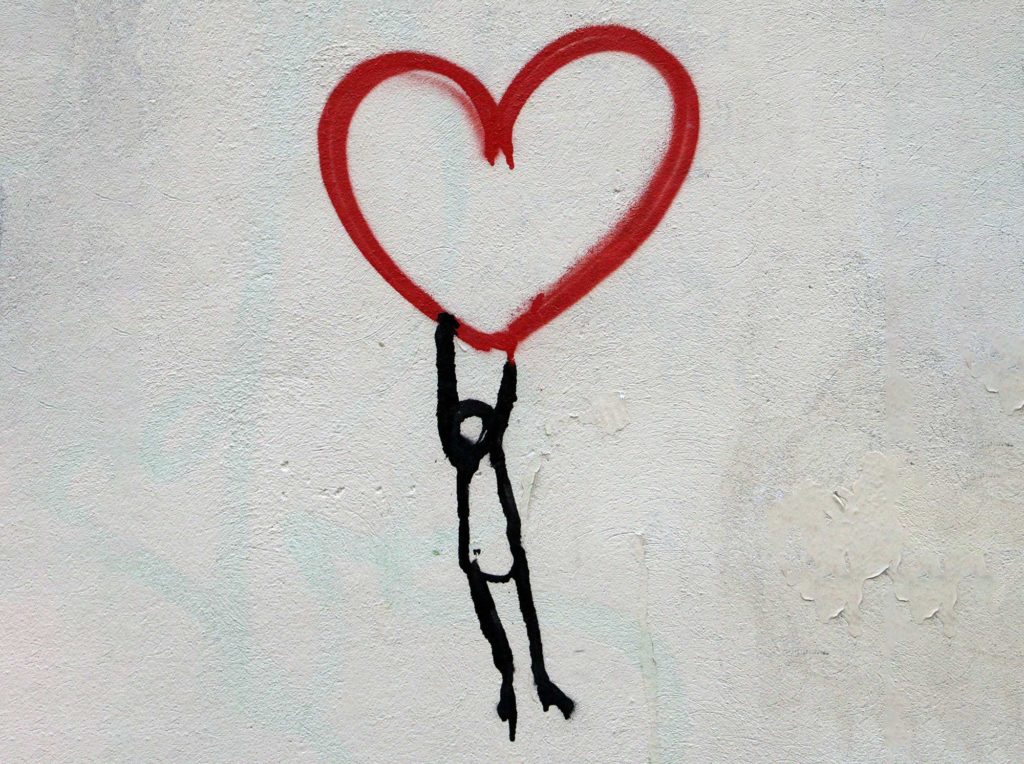
Image by Bianca Berg, Unsplash
In a flash, Marel lunged at Lija. Her stick blurred through the air to strike Lija hard in her ribs. She let out a cry of pain, even as she whirled to grab it. She tucked the end of the stick under her arm and charged at Marel, driving her backward. Marel stumbled and went down heavily on her back.
Someone grabbed Lija from behind. She kicked. Her foot hit something gratifyingly soft. She heard an equally gratifying cry. Then two more people had her, a man and the pale-skinned woman. Marel wrenched the stick from Lija’s grasp. The man to Lija’s left hit her in a flying tackle, hard. Lija went down, buried beneath three bodies.
Lija exploded into a fury of fists and feet. The short, pale woman atop her—Janli, judging by the sound of her cry—flew backward. Lija squirmed free of the two anonymous men. She had almost regained her feet when someone tackled her again. She fell face-first to the ground. Marel stood over her and used the forked stick to press Lija’s face into the dirt. “Stay down!”
Lija flailed helplessly, the dirt cool and damp against her face. She heard a chuckle behind her. Someone—she couldn’t see who—pulled up her skirt. Marel held her face to the ground with her stick while one of the men lifted her hips and shoved himself into her. Lija cried out in impotent fury. She grabbed for Marel’s legs. Marel stayed safely out of reach.
The man took her from behind in fast, rough strokes. Lija came a moment before he did, in a shuddering orgasm so intense it left her lightheaded and breathless. He roared as he spent himself in her.
Marel held her down until the last twitches of his orgasm faded. He slumped sideways. She kept Lija there, pinning her face against the ground, while another man took his place. Lija let out a cry of shock when his hard shaft thrust into her. She grabbed for Marel again.
“Help me hold her,” Marel said.
Faraie and Janli each grabbed one of Lija’s wrists. They pulled her arms out to her side and held her against the dirt. Lija felt her breasts press into the soft, damp earth. She howled with rage. Faraie laughed triumphantly.
—from Book Two, Divine Burdens
The second book in the Passionate Pantheon series, Divine Burdens, is now out in the wild, flittering free through the world. It’s always a bit nerve-wracking for an author to pass a book into other hands; it’s hard not to look at it and say “oh, but maybe I could have done it better!” Books are perhaps a bit like children that way. They hold a little piece of you and carry it to further shores, for good or ill.
Divine Burdens is the first even-numbered book in the series, a ‘tock’ in the tick-tock cycle of upbeat, happy Utopias and dark erotic horror. It’s not an easy read, and it’s not intended to be. We set out to explore ways the happy post-scarcity Utopia of The Brazen Altar might be twisted into something much darker.
One reader, Christine Gilbert, seems to think we hit the mark:
“So, I finished Divine Burdens. And I think I identified why it took me so long to finish it. It’s a deeply uncomfortable book. I think it’s more uncomfortable for readers who really enjoy their own rape and non-consent fantasies, yet place a high emphasis on consent in actual practice. Essentially I had to keep putting the book down in order to think about my own self and reactions and reconcile them in my own head. This is one of the few books I’ve ever read that forced me to do that sort of self-examination that I did NOT find ultimately annoying or preachy or otherwise frustrating. So overall, the two of you have produced something really remarkable here.”
High praise indeed for porn.
There’s a lot of sex in Divine Burdens, and we do mean a lot. And much of that sex is, yes, deeply uncomfortable (sometimes uncomfortably hot as well, we hope). The first part of the novel follows a character named Lija, a top athlete—one of the best the City has to offer—who spends nine months competing with the City’s other best athletes for the honor of being Sacrifice to the god called the Hunt. During her time as Sacrifice, she will spend three days being pursued without sleep through a vast forest by Hunters seeking to overpower her by force so they can use her body for their own pleasure.
Deeply uncomfortable stuff.
During the Hunt, Lija endures painful, violating experiences at the hands of the Hunters, some of whom have modified their bodies to make her experience that much more intense. Since only one who has previously been a Hunter can compete for the position of Sacrifice, she knows exactly what she is signing up for—she has engaged in the same activities from the other side.
And she competes for this position, with other people equally ferociously determined to be that Sacrifice who will be stalked through the forest.
In conversations about sex, particularly about non-traditional forms of sex such as BDSM and even sex work (although let’s be honest, there’s no form of sex that hasn’t existed since long before our modern definition of ‘traditional’), people will frequently use the word ‘degrading.’ Bondage is degrading. Commercial sex is degrading. Kink is degrading. Oral sex is degrading (yes, there are people who say this). Anal sex is degrading. And on and on.
But here’s the thing:
There is, we would argue, no such thing as a sex act that is inherently degrading. Degradation is always, always contextual. Anyone who’s been part of the kink scene knows that one person’s “degrading” is another person’s really fun Friday evening. In some cases, the “degradation” is the fun.
Degradation is contextual.
This nuance is missing from a lot of contemporary real-world conversations about sex. Those who oppose certain kinds of sex (and often favor laws that would prevent anyone from engaging in those kinds of sex—think kink, sex work, porn, anal, and so on) will often say the kind of sex they don’t like is “degrading,” as if that settles it.
But what does ‘degrading’ even mean? Frequently, people call something “degrading” when they actually mean disgusting—that is, it creates a repellent emotion—without seeming to be aware that “disgusting” is merely a subjective personal opinion. (Franklin finds eggplant, what Brits call aubergine, disgusting. Eunice has the same opinion about cucumber. That’s not a reason for anyone else not to eat it. The world would rapidly run out of food options if everything that anyone had ever found disgusting was taken off the table. Starvation does not seem like the better option.)
The dictionary defines “degrading” as “causing a loss of self-respect; humiliating.” Leaving aside the fact that many people in the BDSM scene find it hot to be humiliated, under the right circumstances and with the right partners (see, even that is contextual!), this seems to be the core of what a lot of folks mean when they call something degrading.
But what causes loss of self-respect for one person doesn’t necessarily for another, and what causes loss of self-respect in one context doesn’t necessarily in another. Consider the difference in the way many people think of “Michelin star restaurant chef” versus “burger-flipper”—and yet, some junior chefs in some very expensive restaurants are constantly, deliberately, humiliated by their head chefs, whilst some people working in fast food enjoy the environment. Again, context, including environment, is important.
Think about the most ‘normal,’ ordinary, plain-vanilla sex you can imagine: heterosexual missionary PIV intercourse, for example. Is that degrading? When it’s consensual, no. If it’s not consensual, yes. The context, not the activity, is what matters.
Are the things that happen to Lija in the forest degrading? She is pursued, frightened and exhausted and incoherent, for days. Her pursuers force themselves on her, and if she is not able to fight them off, satisfy their lusts in graphic and uncomfortable ways.
Yet she fought, hard, for this—against a number of opponents who fought equally hard to be there. And the ones who lose this competition are emotionally crushed. (We’ll be exploring that more in book six; stay tuned!)
Why? What’s in it for her? Why would anyone want any of this?
Ideas about sex are complex, and informed both by our own tastes and by the attitudes of the society around us. Society tells us, often with considerable pressure, what forms of sex are acceptable and what forms aren’t (typically this can vary by your status, and in some cases it can be actively self-contradictory). Sometimes—often, in fact—it’s possible to internalize those ideas so strongly that we literally cannot imagine it’s possible to feel any other way.
The society of the City is not like society in the real world. Sacrifices to the Hunt are venerated. They’re recognized as the best of the best—the strongest, the most skilled, the most capable athletes the City has to offer. Only those who have already proven themself the most proficient are considered able to take up the most extreme form of worship.
And the thing is, veneration of non-sexual activities that might in a different context be ‘degrading’ isn’t unusual, even in the real world. People are often venerated for enduring physically violating, uncomfortable, even dangerous things…and sometimes are willing to risk death for it. (We talked in an essay on post-scarcity horror about how the citizens of Lija’s City would be utterly appalled by the grotesquery of the boxing industry. And we think a strong argument can be made that the sport of boxing—or many others, for that matter—can be more abhorrent than what happens to Lija, if you see sex and violence as equally primal, visceral activities.)
The society we live in is deeply uncomfortable with sex, which means using sex to illustrate these ideas is deeply uncomfortable. That’s part of the point; that’s why we write the even-numbered books the way we do.
We aren’t saying that Lija endures degradation to win the admiration and kudos of the City, though. That’s not it at all. The point we’re making is much deeper: For Lija, what happens to her in the forest is not degrading. She would not in any way characterize her experiences as degradation. Just the opposite: for her, they are an act of ecstatic religious worship.
Throughout history, deeply religious people have endured all kinds of things that might be considered degrading by outsiders in their quest for religious expression: self-flagellation, scarification, starvation, self-crucifixion (warning: link contains graphic images). Even the annual ritual in which the Pope washes other people’s feet on Holy Thursday—in a different context, this might be degrading; in this context, it’s considered a showing of piety and humility.

None of this is seen as degradation by those who do it—just the opposite, in fact. If you take the reflexive reaction many of us have been taught to feel about sex out of the equation, some of these activities are, we would argue, actually much more intense than what Lija experiences. Certainly the isolation alone would make it so. Lija, at least, has the support and admiration (and oftentimes envy) of the entirety of her society and community to encourage her in her worship.
And, let’s be honest: there are people in the BDSM scene right now who would, if their safety were 100% assured, volunteer to be in Lija’s place in a heartbeat, even with no religious element to the Hunt at all. Absolute safety changes what people are willing to consent to.
Hell, there are people in the real world who would sign up even without a guarantee of absolute safety. But that does illustrate an important point: Lija knows, absolutely knows the way you know that you exist at all, that she will not be permanently harmed by being Sacrifice to the Hunt. Anything, short of instantaneous death by destruction of the brain, is totally fixable—and without even a scar or extended healing time. She knows that, as uncomfortable as the experience is, she will be okay. That matters. Context is everything.
Degradation is contextual. Recognizing that is important, we feel, to nuanced, ethical conversations about sex.









